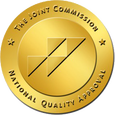who advertise inflated treatment statistics, pamphlets with buzzwords that come from a marketing consultant and mean little clinically, late night television ads promising cure-alls, website stock photos showing stacked rocks and contrived scenes of actual recovering people (models), complete with sunset and horse! The foundation of a successful recovery: being naturally beautiful and in a well-lit, picturesque environment So, we know recovery involves pretty people and sunsets, but what else is recovery? If I stop sharing needles and start carrying naloxone and using safer injecting practices, is that recovery? If I have improved connections in all of my relationships and emotional regulation, and I'm using Suboxone or methadone, is that recovery? If I go from using IV heroin to smoking weed all day, is that recovery? I don't think it matters how we feel about any of it. I am more concerned with how our ideas affect our clients and their perceptions of behavior. Too many times the clients I work with—especially opioid addicts using some sort of agonist medication—feel that what they are doing isn't "real" recovery. Mainly, they feel this way because they are told this explicitly lots of times by people who should know better. I have recurring experiences with treatment providers who, for the life of them, cannot make sense of somebody being both in recovery and on Suboxone. The enmity that exists between them and their colleagues who advocate treatment via medication therapies does nothing to advance the treatment of alcoholics and drug addicts, only the egos of those involved. The arrogance in the idea that the answer is here, today—that the current treatments we have for addiction are somehow good enough—is troubling. I came across this anecdote as told by one of the originators of Methadone Maintenance Treatment in a lecture series. Vincent Dole, a nonalcoholic trustee of AA, had this to say: “At the last trustee meeting (of AA) that we (Vincent Dole and Bill Wilson) both attended, he (Bill Wilson) spoke to me of his deep concern for the alcoholics who are not reached by AA, and for those who enter and drop out and never return. Always the good shepherd, he was thinking about the many lost sheep who are lost in the dark world of alcoholism. He suggested that in my future research I should look for an analogue of methadone, a medication that would relieve the alcoholic’s sometimes irresistible craving and enable him to progress in AA toward social and emotional recovery, following the Twelve Steps.” I'm just going to leave that "always the good shepherd" part for another post, but I have no reason to doubt the veracity of his claim regarding Bill's hope for those not helped by AA. I am consistently dumbfounded by the dogmatic reaction of people who claim adherence to a program which, in my mind, is based on non-conformity and freedom of thought. I mean, Bill did LSD and thought niacin might be a cure-all for addiction. This is what this movement was founded on, a willingness to continue to seek new ways of fighting alcoholism. I'm especially saddened by what appears to be the willful lack of knowledge around the treatment of opioid addiction relative to abstinence. I mean, the science is in. Anecdotes aren't enough. Suboxone has been described in my community by clinicians and owners of sober housing and other ancillary services as “a scourge.” I have listened to a room full of people who accept money—lots of it, I might add—from people who are taking Suboxone, argue with psychiatrists who were presenting data on relapse and addiction. The clinicians were sharing how lives are being saved by combining traditional therapies related to the 12 steps and MAT and how a new paradigm is needed to help stem the tide of heroin addiction. The data was met with anecdotes from the crowd about how it didn’t work for them, or how it creates issues in the sober houses they own. All of this was spoken with a disdain for a new approach, like it was somehow a threat to recovery as a whole and that these people were the last defense of the purity of the program. So be it. It is time that those of us in the abstinence-based community attempt to make amends for our arrogance and stubborn resistance to what is now an avalanche of proof that MAT works. I was one of those practitioners. I questioned the use of buprenorphine as a counselor at Hazelden. I became angry when people would suggest that our treatment was hurting our clients. I remember distinctly being in a presentation focused on informed consent where the data on recovery rates from opioid addiction were presented dispassionately, but bluntly. I asked the presenter if he thought there was room for abstinence-based treatment for opioid addiction. He responded that there was, but likened it to using alternative treatments for cancer. After swallowing a fair amount of pride with the unhealthy dose of anger our interaction produced, I asked him to lunch. I was floored. And I was changed forever. I find that I want to justify my actions by telling the rest of my story, but I don’t think that this is the time. The justifications, the good intentions, even actual positive results are not enough. The reticence to accept that we were wrong needs to be addressed in the entire community. It’s like we want to change everything but refuse to acknowledge that we corrected course. This is the price for continuous improvement, and it is so much more important than our egos. I’m sick of going to funerals. I’m sick of seeing the families of young addicts decimated by what could have been avoided. I’m sick of the enmity between the “camps,” and yet I understand it. I have lived it—both sides. I am hopeful, however. I have met the next generation of both clinicians and recovering individuals. It seems to me that they have a freedom of thought and an intellectual humility that doesn’t seem to be as common in their older peers. They recognize that there are different paths to recovery, and maybe most importantly, they seem to realize that more will be revealed. Jordan Hansen is an experienced clinician, speaker and writer focused on integrating the science of cutting-edge treatment modalities with the wisdom found in peer-supported approaches to recovery. His approach is based on authenticity, interpersonal connection and a steadfast focus on person-centered, evidence-based interventions. His experience within residential, long-term and outpatient levels of care is informed by his background in journalism, vocational counseling and non-profit management. Areas of recent focus include assisting in the design and implementation of Medication-Assisted Therapy for opioid addiction, policy work with the MN state legislature, distribution of naloxone kits to local opioid addicts at risk for overdose, and artistic and literary efforts aimed at sharing his experience with long-term recovery from addiction and mental illness. He is a graduate of the Woody Guthrie Academy, The University of Saint Thomas and The Hazelden Graduate School. https://www.thefix.com/can-12-step-recovery-include-suboxone-methadone
3 Comments
Johnnie Mollin, MA, MFTI
5/5/2016 09:45:57 pm
Well written and extremely insightful.
Reply
Leave a Reply. |
Insurance Providers we honor:
|
|
|
We honor many more insurance providers than listed on our website - We are often able to negotiate benefits with most insurance providers.
Mark of Excellence Behavioral Health Care !!
© 2022 Hillside Laguna Beach, LLC. Substance Abuse Treatment & Recovery Centers |


 RSS Feed
RSS Feed
